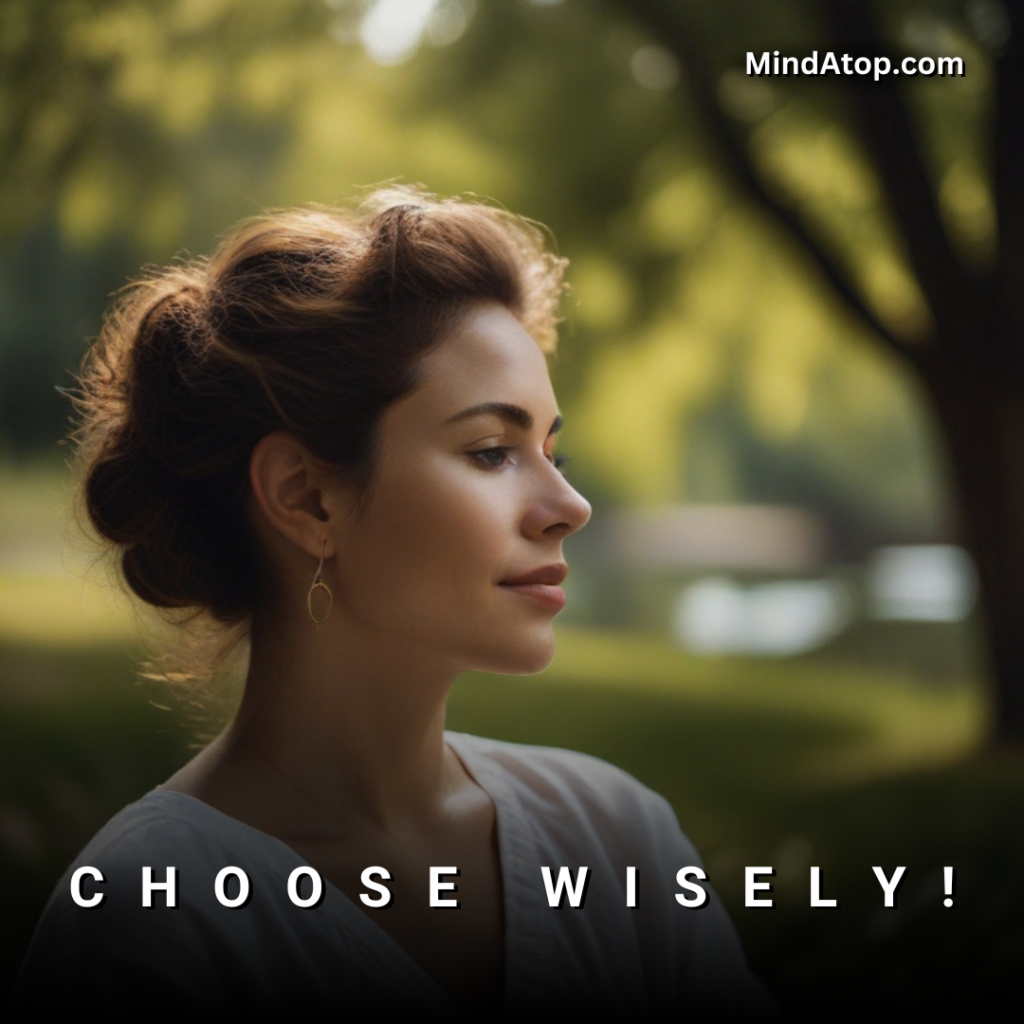Choose Wisely
It wasn’t silence that made her powerful—it was knowing when to choose wisely
Choose Wisely—that was the quiet motto Kriti lived by, though she never said it aloud unless someone truly needed to hear it. In a small town near Pune, she was known not for loud opinions or flashy posts, but for her calm presence and thoughtful ways. Though young, Kriti carried a sense of awareness that often made others pause and reflect.
While her friends immersed themselves in daily soap operas filled with melodrama or endless social media debates, Kriti chose her entertainment with care. She believed that what you consume—on screen or online—feeds your thoughts, and your thoughts shape your life.
One evening, her friend Anjali came rushing to her house, fuming with anger. “Did you see the latest viral video? That politician insulted our entire community! We should protest! We can’t stay silent!”
Kriti, who had been watering her tulsi plant, looked up calmly. “Did you verify if it’s true?”
Anjali frowned. “It’s all over social media. That’s proof enough!”
Instead of reacting, Kriti took out her phone and searched for the full speech. Within minutes, it was clear that the viral clip had been edited to provoke outrage. The original speech was about unity and social development—taken entirely out of context.
Anjali’s anger melted into confusion, then embarrassment. “I wasted my entire day arguing over this. I even blocked two friends.”
Kriti placed a reassuring hand on her shoulder. “That’s why we must choose wisely, Anjali. Not everything that gets views deserves our attention. Not all entertainment is harmless. Some of it is designed to make us angry, fearful, even hateful.”
Anjali nodded slowly, the impact of those words settling in.
Another time, Kriti’s younger brother Rahul developed an obsession with a late-night crime show. Every evening, he watched stories filled with betrayal, greed, and murder. The more he watched, the more paranoid he became. He started believing that people around him had hidden motives.
One night, their mother came home later than usual. Rahul, panicked, paced the hallway. “Why isn’t she back yet? What if something bad happened?”
Kriti noticed his anxious face. “Why do you think that way?”
“The world is dangerous,” he muttered. “You never know what people are hiding.”
Kriti gently turned off the TV and sat beside him. “This show you’re watching—it’s changing how you see the world. Yes, danger exists. But it’s not all darkness out there. Look at Baba, who helps every neighbor without asking for anything in return. Look at Aai, who trusts the milkman to deliver every morning without fail. The world still has goodness in it.”
Rahul looked unsure but nodded slowly. From that night onward, he made a conscious effort to balance his entertainment. He mixed lighthearted comedies, nature documentaries, and real-life inspiring stories into his routine. Over time, his anxiety lessened, and his smile returned.
Kriti didn’t avoid entertainment; she simply filtered it. She enjoyed classical dance programs, read novels that challenged her thinking, and watched films that left her with warmth rather than weariness. Her rule was simple: if something disturbed her peace repeatedly, she left it behind.
One golden evening, as the sun dipped below the hills, Kriti and her friends gathered at the local chai shop. They laughed, shared stories, and joked about how easy it was to fall down the rabbit hole of negativity online.
“You never get into online fights, you don’t binge-watch toxic dramas, and you never fall for fake news,” said Ramesh, stirring his chai. “How do you do it?”
Kriti smiled. “It’s not magic. I just ask myself: does this bring peace to my mind or poison? I choose wisely what I allow in.”
Her words struck a chord. One by one, her friends began becoming more mindful too. They stopped forwarding sensational news without checking, limited their time on apps that drained them, and began choosing books and shows that made them feel alive, not angry.
In a world drowning in distractions and noise, Kriti remained a lighthouse of clarity. Through her quiet example, she taught others that the path to peace wasn’t paved with silence or isolation—it was carved by choices. And those who choose wisely find not just calm, but power.
Must Read Stories:
Caught in a Whirlpool? – “Unwise choices often echo loudest in stillness.”
Take Yourself in an Upward Spiral – “Let this be the shift your inner self deserves.”
HOW AM I?!!! – “Return to the moment when questions began to form.”

